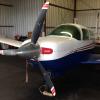Officially started IR traing today
-
Members Online
- CalebH
- tony
- amekler
- JimK
- mike_elliott
- PMcClure
- cbarry
- Skates97
- Dieselman1220
- TCC
- Tmooney
- PT20J
- 47U
- jamesyql
- jetdriven
- kortopates
- Neshi
- 201er
- ftresdtrswhes45
- AspiringOwner
- CChris
- 00-Negative
- TravelingIA98
- alexz
- M20S Driver
- richardbrochu27
- mooniac58
- Nico1
- FlyingDude
- Ragsf15e
- Ibra
- mmcdaniel33
- eman1200
- Barneyw
- Old Chub
- JustusSJ
- rbmaze
- Fly Boomer


Recommended Posts
Join the conversation
You can post now and register later. If you have an account, sign in now to post with your account.